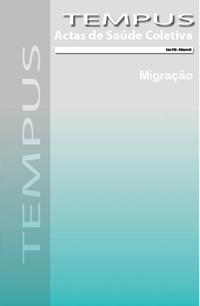Abstract
Despite the 1988 Federal Constitution and the unprecedented nature of the recent Migration Law, in force in the country since 2017, in which the social rights guaranteed to international migrants residing in the country are established, in practice there is a violation of rights and non-inclusion of this population in its entirety. Among the barriers are the linguistic and cultural difficulties that place them in a situation of vulnerability. The objective of the study was to portray the practice of teaching Portuguese to refugees and immigrants residing in the city of Uberlândia, Minas Gerais, and to stimulate discussions about the need for policies that involve the theme “Education and Migration”. It was a case study, with a non-governmental organization as the study area. We used observations of Portuguese classes for foreigners and, analysis of teachers' reports, from October 2016 to June 2018. The results showed: difficulties in dealing with cultural and religious issues in the classroom, success in the logistical reorientation of classes close to the residence of immigrants, preparation of didactic material suitable for the target audience and extra-linguistic needs presented by migrants, mainly linked to insertion through work. We conclude that despite the performance and the importance of non-governmental actions, the effective performance of the State as responsible for immigrants residing in the country is essential, as provided by Brazilian law. In the face of linguistic difficulties, we believe that teaching Portuguese is a way of welcoming international migrants, as a first step towards the conquest of human rights, lacking educational public policies that involve them.
A Tempus garante critérios rigorosos, por meio de avaliação sistemática. Os autores se responsabilizam pela veracidade e ineditismo do trabalho cabendo a eles a cessão de direitos de publicação à revista. A confiabilidade dos conteúdos e a marca própria de apresentação tem como objetivo uma comunicação personalizada, adaptada aos padrões da revista, na medida em que adota critérios de excelência exigidos por seus usuários e especialistas, considerando os rigores da comunicação científica. Os autores devem especificar sua contribuição individual na concepção, delineamento, execução do trabalho, análise ou interpretação dos dados, redação e aprovação final do manuscrito. Incluir Fontes de financiamento e de apoio logístico das pesquisas. Ao final da submissão do artigo, os autores devem enviar uma declaração de cessão de direitos de publicação à Revista TEMPUS , assinada e no formato PDF (Portable Document Format ): Modelo da declaração de cessão de direitos.
